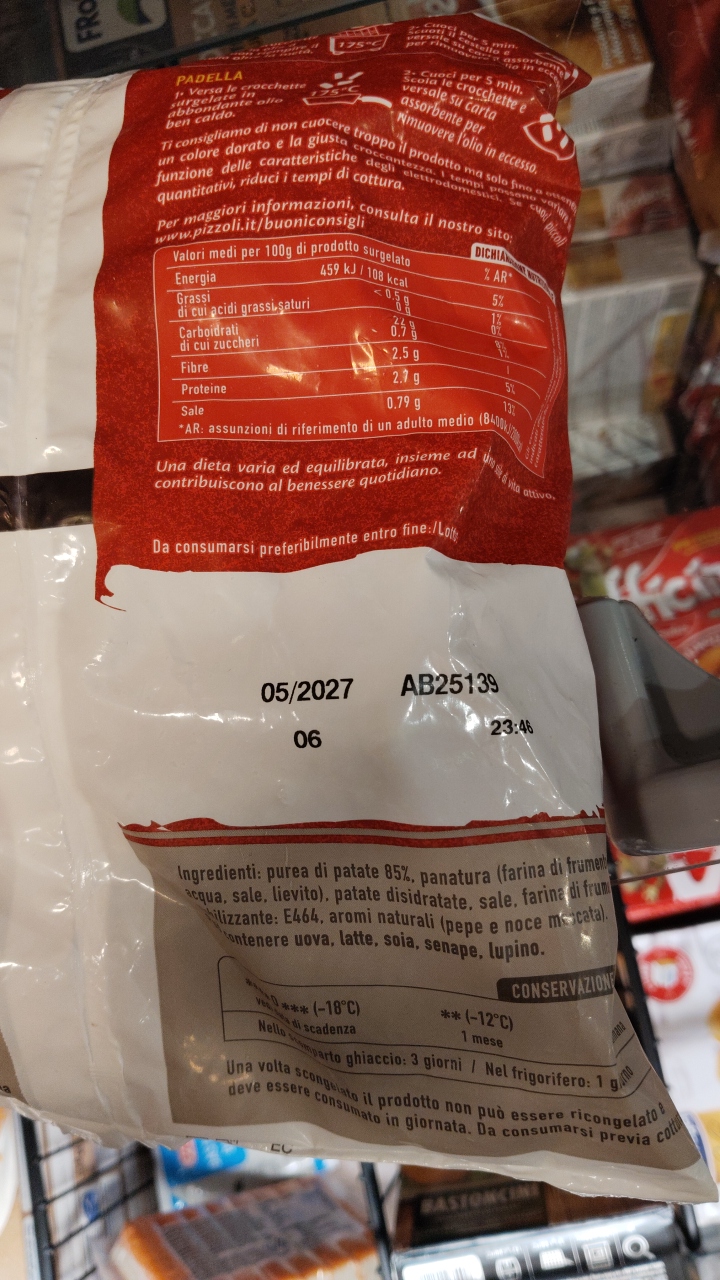
Barcode: 8002411402024
padella
HALAL
📝 Reason: After systematic review, all ingredients are either plant- or mineral-based and do not contain any Haram E-codes (such as E120, E124, E354, E999). E464 is confirmed Halal from the provided list and other references. No meat, animal-derived enzymes, alcohol, or suspicious additives are present. Therefore, the product is Halal according to Quran 5:3 and major Halal authorities (e.g., IFANCA, www.foodchemadditives.com).
🏷️ Category: Frozen Food
📄 Certificates: None
Ingredients:
Details
Is Padella Halal? Let’s Dive Deep into Its Ingredients!
If you’re seeking Halal food products, you may have come across the frozen food item known as Padella. The question on many minds is: Is Padella Halal? Good news for Halal-conscious consumers! After a comprehensive review of its ingredients, we can confidently say that Padella is indeed Halal. In this article, we will thoroughly explore its ingredients, especially the E-numbers, to provide clarity on why this product adheres to Halal dietary guidelines.
Understanding Halal Status
The term ‘Halal’ means permissible in Arabic and refers to what is allowed or lawful in Islam. According to the Quran (5:3), certain dietary laws must be followed for food to be considered Halal. Compliance with these rules governs the approval of various food products, including frozen foods like Padella.
Ingredient Breakdown
Let’s look at the ingredient list for Padella:
- Purea di patate (85%)
- Panatura (farina di frumento, acqua, sale, lievito, patate disidratate)
- E464 (Hydroxypropyl methylcellulose)
- Aromi naturali (pepe e noce moscata)
- Contiene uova
- Latte
- Soia
- Senape
- Lupino
Ingredient Analysis
Now, let’s take a closer look at each ingredient, especially focusing on the E-numbers and their Halal statuses:
1. Purea di patate (Mashed Potatoes)
Made from vegetable sources and is therefore Halal. The ingredient is free of animal-based additives. Source.
2. Panatura (Bread Crumb)
The breading contains wheat flour, water, salt, and yeast. All components are permissible in Islam, especially the wheat flour which is universally accepted as Halal. Source.
3. E464 (Hydroxypropyl Methylcellulose)
This is a cellulose derivative from plant sources and is recognized as Halal. You can find its classification in various food additives references. Source.
4. Aromi Naturali (Natural Flavorings)
Contains natural spices like pepper and nutmeg. While there are some disputes concerning nutmeg, it is generally deemed acceptable in the food quantities used here. Both spices have Halal status. Source.
5. Eggs and Dairy
Contains eggs and milk, both Halal by nature as they come from permissible animals such as cows and hens. They can be consumed unless contaminated by Haram substances. Source, Source.
6. Expanded Items (Soy, Mustard, Lupin)
Each of these ingredients are plant-based and approved under Halal guidelines. They add both nutritional value and flavor to the product without violating Halal standards. Source.
Final Thoughts: Why Padella is Halal
In conclusion, Padella is Halal. After inspecting all its ingredients, we found that none of the constituents violate Islamic dietary laws. The absence of meat, alcohol, or suspicious additives further cements its Halal status. Halal authorities, including IFANCA, recognize this product as compliant with dietary regulations. If you are a consumer who values Halal food options, feel confident in choosing Padella for your meals!
